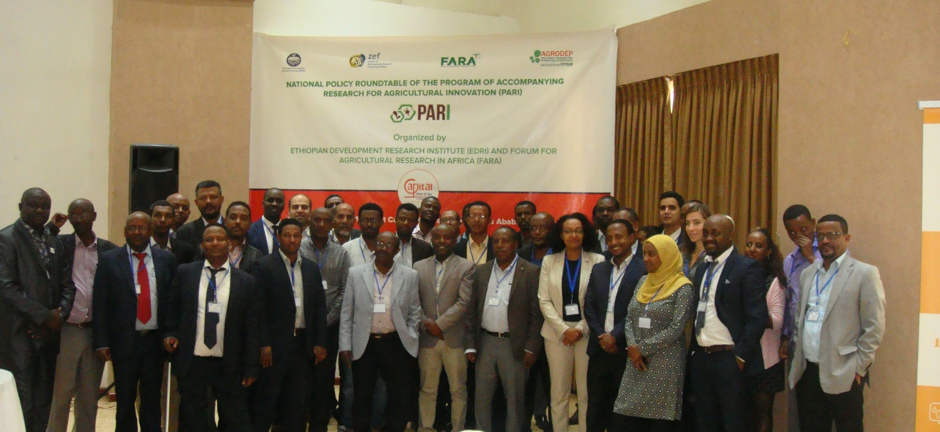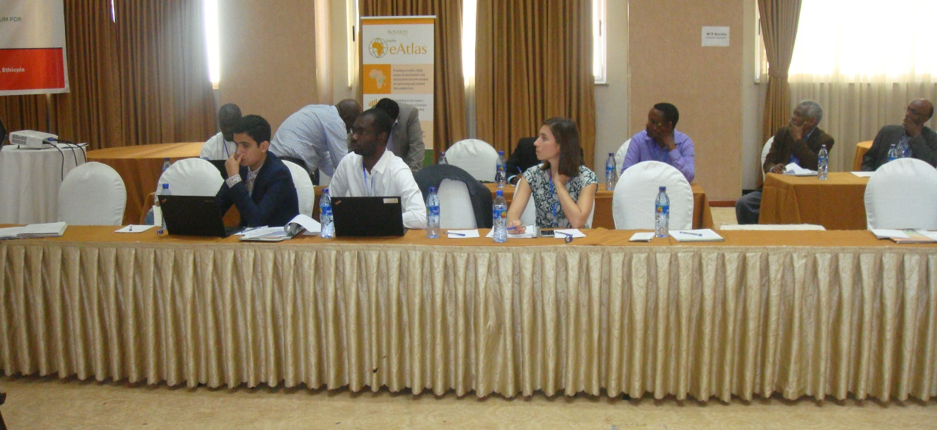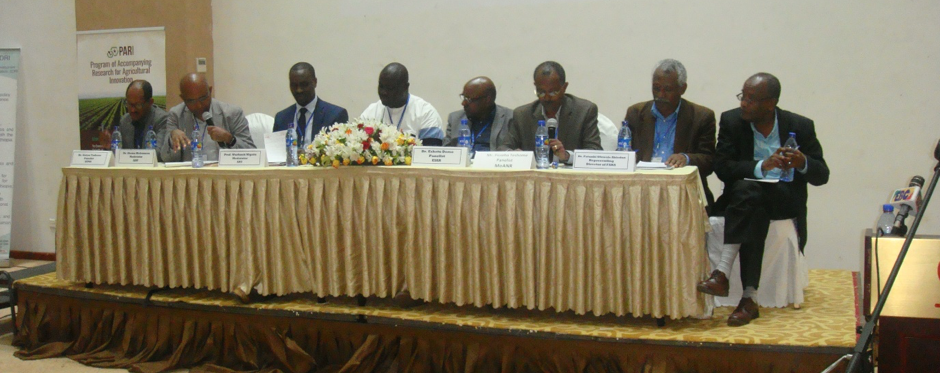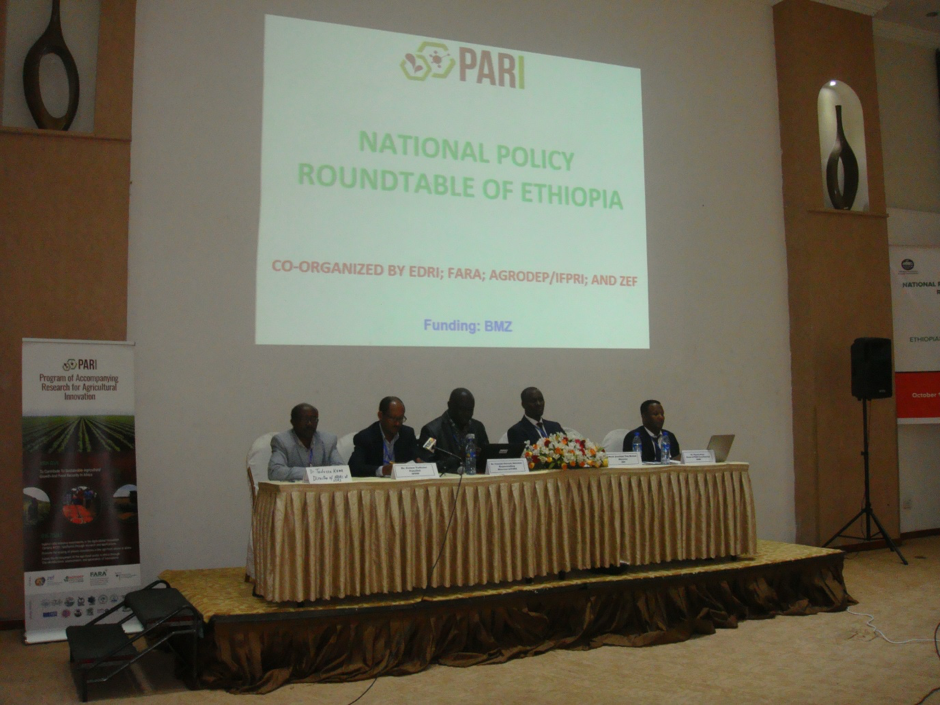On October 12 and 13, 2017, 53 agricultural stakeholders met in Addis Ababa for a national policy roundtable to discuss the policy measures needed to promote agricultural development in Ethiopia. These included representatives from Ethiopian government ministries, development organisations (including the GIZ), farmers’ cooperatives, private sector organisations, as well as educational, extension, and research institutions (FARA, ZEF, AGRODEP/IFPRI). The Policy Roundtable was organized by PARI and hosted by the Ethiopian Development Research Institute (EDRI).
The goals of the roundtable were to:
- Present preliminary research findings relevant to Ethiopia to key stakeholders engaged in national innovation processes.
- Ground-truth the findings with local expertise and receive feedback and guidance on further research.
- Jointly identify policy implications of the research, with special emphasis on the potential of promising innovations that would promote agricultural development, jobs and food security.
Key Presentations:

- Overview of PARI research and outputs in Ethiopia
- The role of agricultural information in the adoption of technologies on crop productivity in Ethiopia
- Production constraints, efficiency, productivity and innovation in the wheat and fava bean value chains
- Ethiopian eAtlas as a tool for the prioritization and typology of development
- Crop modelling and the potential for crop technology innovations in Ethiopia
- Economic modelling of technology options in Ethiopia
- Farmers’ innovations (collected using innovation contests) with the potential for upscaling in Ethiopia

Key Outcomes:
Collaborations and partnerships
Participants proposed that further PARI research activities be conducted in collaboration with actors from different disciplines. Future research activities should adopt a more inter and trans-disciplinary approach.
The need for more, reliable data:
Ways to generate and use reliable data should be further explored. Studies and models should use the most reliable data sources and address significant targets and scales in particular.
Focus beyond cereals:
Focus should be extended onto value chains other than cereals, which could include oil crops, such as sesame. Larger themes of food and nutritional security were also addressed, and emphasis was placed on the importance of extension services, farmer training and capacity building.
Validation of innovations:
The need to test and validate farmer generated (bottom-up) innovations for scale dissemination, risk assessment and management was discussed. Furthermore, the importance of validating the results of crop, technology, and economic modelling simulations published in PARI studies before sharing these findings with policy makers was noted (the scaling of innovations must also be contextualized in different agro-ecosystems for greater success).
Key Areas of future research activities:
- Scaling of innovations: sustainable scaling of agricultural innovations (with attention to small and medium scale industrialisation and market linkage)
- More research on nutrition is needed
- The need for gendered perspectives on innovation generation and adoption
- Innovations in smallholder mechanization (worth checking based on the farmer contest*)
- Input and output markets constraints and opportunities


